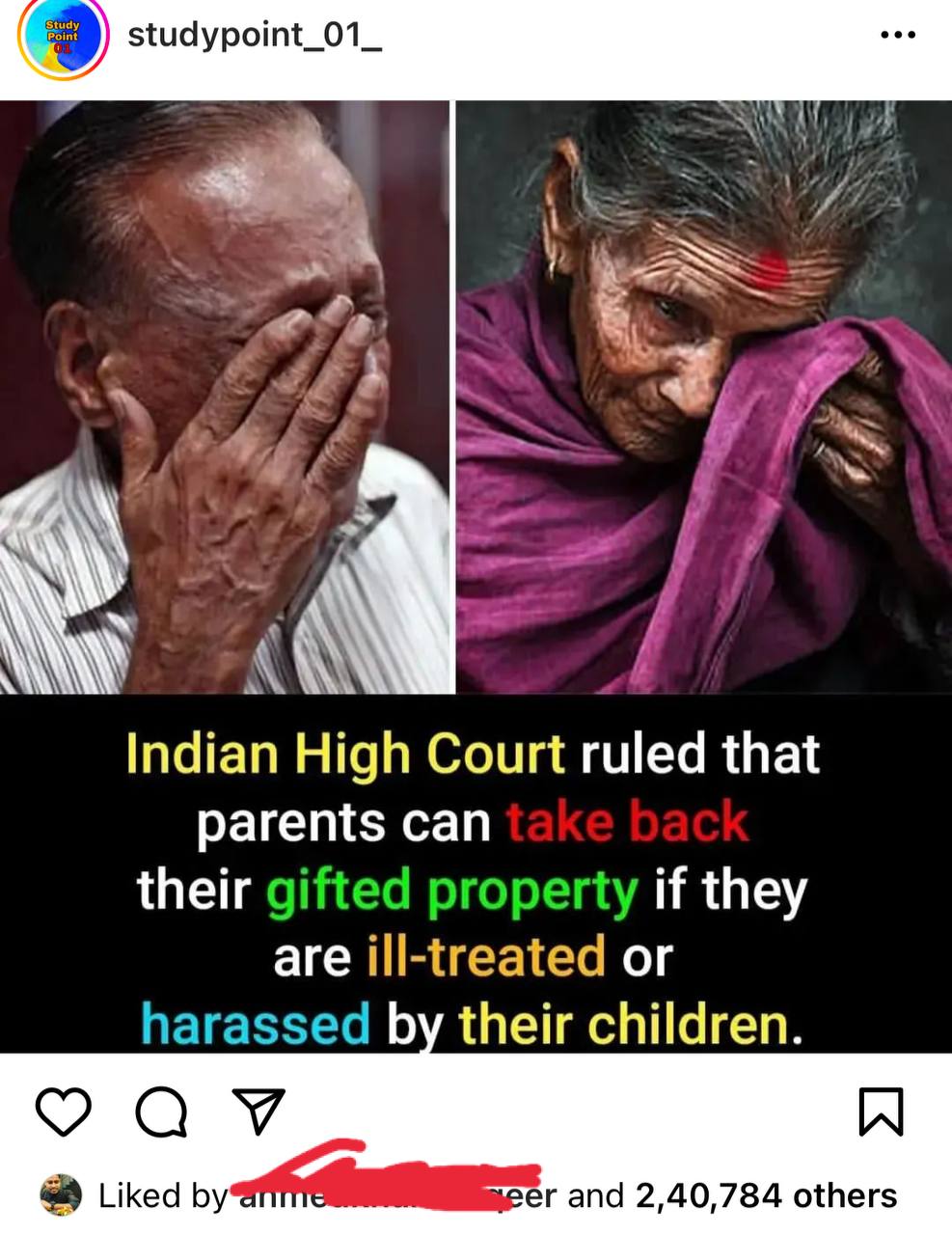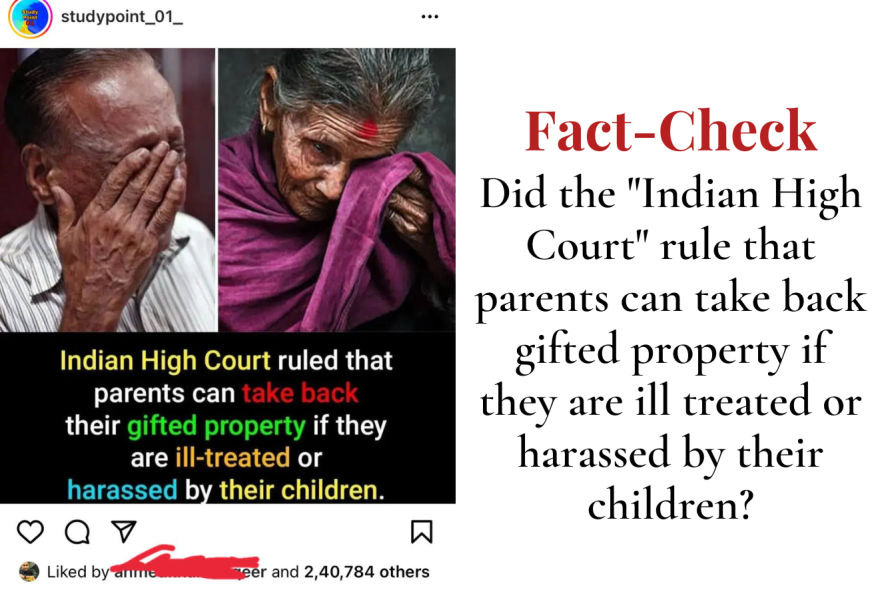An Instagram page which goes by the name of “studypoint_01_” posted a meme with the title “Indian High Court ruled that parents can take back their gifted property if they are ill treated or harassed by the children”. The post carried the pic of two crying and destitute elders and was uploaded on 6th October and as of 16th October there are approximately 2.5 lakh likes on the post. A screenshot of the post is given below

Let us check the veracity of the claims on the post.
There is no such thing as the “Indian High Court”. The apex judicial body in India is the Supreme Court followed by 25 High Courts. Therefore, the source of the statement “Indian High Court ruled..” seems to be incorrect. Next, we checked if the source of law could be something else and found that the Maintenance and Welfare of Parents and Senior Citizens Act, 2007 has a provision for this law. Section 23 of the Act is given below:
Transfer of property to be void in certain circumstances
- Where any senior citizen who, after the commencement of this Act, has by way of gift or otherwise, his property, subject to the condition that the transferee shall provide the basic amenities and basic physical needs to the transferor and such transferee refuses or fails to provide such amenities and physical needs, the said transfer of property shall be deemed to have been made by fraud or coercion or under undue influence and shall at the option of the transferor be declared void by the Tribunal.
- Where any senior citizen has a right to receive maintenance out of an estate and such estate or part , thereof is transferred, the right to receive maintenance may be enforced against the transferee if the transferee has notice of the right, or if the transfer is gratuitous; but not against the transferee for consideration and without notice of right.
- If any senior citizen is incapable of enforcing the rights under sub-sections (1) and (2), action may be taken on his behalf by any of the organisation referred to in Explanation to sub-section (1) of section 5
A simple reading of the Section 23 (1) makes it clear that the source of the statement made in the Instagram page is not the “Indian High Court” but the Maintenance and Welfare of Parents and Senior Citizens Act which came into force in 2007. If any senior citizen, after the passing of the act, has gifted his or her property to their children with the condition that the children will provide basic amenities to him/her and the children fail to provide that, in that case – the said transfer can be held to be obtained by fraud with the option given to the transferor (senior citizen) to declare it void.
Subsequent to passing of the Act, there have been multiple judgments by various courts in the country by which the law has come to the aid of the destitute elderly people. A simple search on SCC Online brought up 93 judgments given by various High Courts on Section 23 of the abovementioned Act. These judgments have been given by Kerala High Court, Punjab & Haryana High Court, Madras High Court etc where the law under Section 23 has been further analysed and interpreted.
For example, in the case of Ranjana Rajkumar Makharia v. Mayadevi Sukhkaran Makharia 2020 SCC OnLine Bom 2017, the Bombay High Court has discussed preconditions for declaring transfer of property void under Sec 23 and Sec 7 of the above Act.
Therefore, we can safely say that the meme posted by the Instagram page is not wrong as far the content of the law is concerned i.e. taking back gifted property by the elderly parents who are harassed by their children, however the primary source of the law is Maintenance and Welfare of Parents and Senior Citizens Act, 2007 and not the “Indian High Court”.







